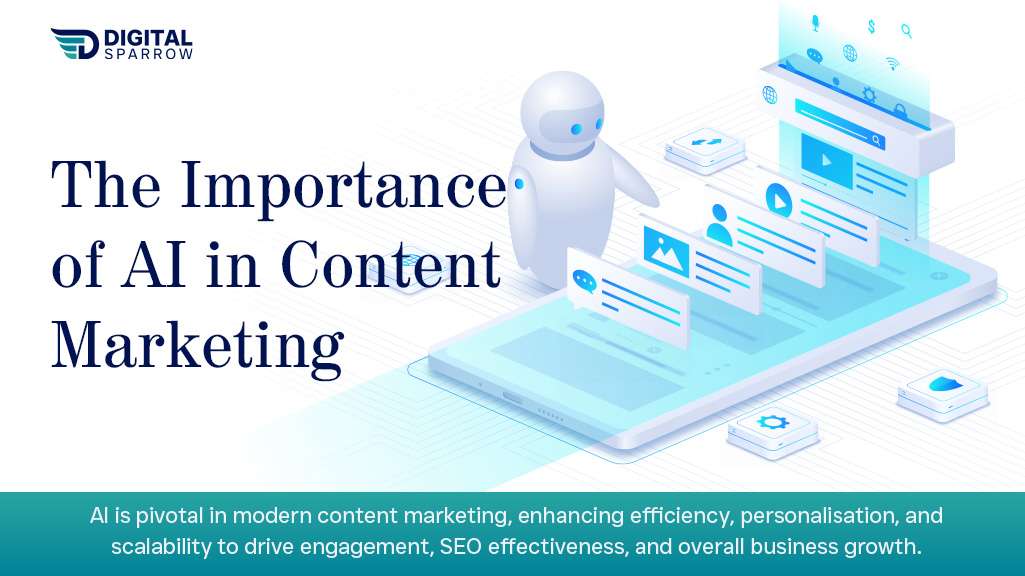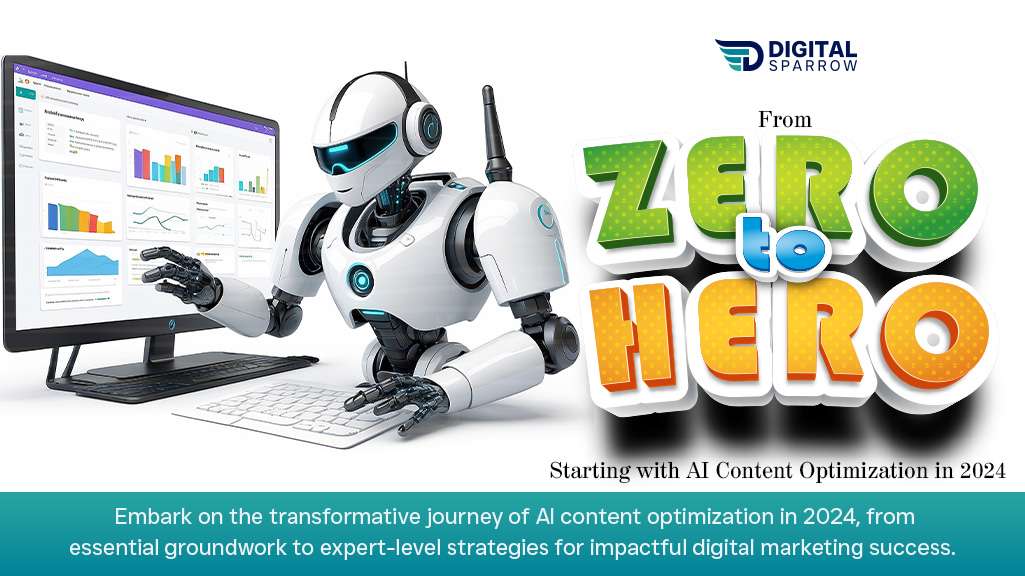In today’s digital landscape, the phrase “content is king” remains as relevant as ever. However, the methodologies behind content creation and optimisation have evolved dramatically. Artificial Intelligence (AI) is at the forefront of this transformation, revolutionising how we produce, optimise, and manage content. This guide will take you from zero to hero in AI content optimisation, with a focus on SEO Trends and Techniques and SEO-friendly practices.
Introduction to AI Content Optimisation
Artificial Intelligence has made significant strides in various fields, and content marketing is no exception. AI content optimisation involves using advanced algorithms and machine learning to enhance the quality, relevance, and performance of digital content. By leveraging SEO Trends and Techniques through AI, businesses can improve their SEO rankings, increase engagement, and drive more conversions.

The Importance of AI in Content Marketing
AI content optimisation is not just a trend; it’s a necessity for staying competitive in 2024. Here’s why:
- Efficiency and Speed: AI can analyse vast amounts of data quickly, providing insights that would take humans much longer to uncover. This efficiency allows for rapid content creation and optimisation.
- Precision and Personalisation: AI can tailor content to specific audience segments, ensuring that the right message reaches the right people at the right time.
- Scalability: AI tools can handle multiple tasks simultaneously, enabling businesses to scale their content marketing efforts without compromising quality.
Getting Started with AI Content Optimisation
Step 1: Understanding the Basics
Before diving into AI tools, it’s crucial to understand the basics of content optimisation. This includes keyword research, content structuring, and SEO principles.
- Keyword Research: Identify the keywords that are relevant to your industry. Use tools like Google Keyword Planner or SEMrush to find high-volume, low-competition keywords.
- Content Structuring: Organise your content with clear headings, subheadings, and bullet points. This makes it easier for both readers and search engines to navigate.
- SEO Principles: Ensure your content follows SEO best practices, such as using meta tags, optimising images, and including internal and external links.
Step 2: Choosing the Right AI Tools
There are numerous AI tools available for content optimisation. Some popular ones include:
- Grammarly: Helps with grammar, punctuation, and style suggestions.
- SurferSEO: Provides data-driven insights to optimise content for search engines.
- Copy.ai: Generates high-quality content based on brief inputs.
- MarketMuse: Uses AI to analyse content gaps and suggest improvements.
Step 3: Implementing AI in Content Creation
Once you’ve chosen your tools, it’s time to implement them in your content creation process.
- Content Generation: Use AI tools to generate ideas and draft content. While AI can create content, a human touch is essential for maintaining authenticity and relatability.
- Content Optimisation: Leverage AI to analyse and optimise your content for SEO. This includes keyword density, readability, and relevance.
- Performance Monitoring: Use AI to track the performance of your content. Tools like Google Analytics and Ahrefs can provide insights into how your content is performing and what can be improved.
Best Practices for AI Content Optimisation
Maintain a Human Touch
While AI can significantly enhance content creation, it’s essential to maintain a human touch. Authenticity and relatability are key to engaging your audience. Here are some tips:
- Voice and Tone: Ensure your content reflects your brand’s voice and tone. AI tools can help with style suggestions, but the final touch should come from a human.
- Storytelling: Use storytelling to make your content more engaging. AI can generate data-driven insights, but the emotional connection comes from human storytelling.
- Feedback and Iteration: Continuously seek feedback from your audience and iterate on your content. AI can provide data, but human intuition is crucial for interpreting that data and making informed decisions.
Focus on Quality over Quantity
With AI, it’s easy to produce a large volume of content quickly. However, quality should always take precedence over quantity. High-quality content is more likely to engage readers and rank higher on search engines. Focus on creating valuable, informative, and well-researched content.
Embrace Natural Language Processing (NLP)
Natural Language Processing (NLP) is a subfield of AI that focuses on the interaction between computers and human language. NLP can help with understanding context, sentiment, and intent, making your content more relevant and engaging.
- Contextual Understanding: NLP can analyse the context of your content, ensuring that it aligns with the user’s intent.
- Sentiment Analysis: NLP can gauge the sentiment of your content, helping you understand how it might be perceived by your audience.
- Content Relevance: By understanding user intent, NLP can help you create content that is more relevant and valuable to your audience.
Case Studies: Success Stories with AI Content Optimisation
Case Study 1: E-commerce Brand
An e-commerce brand leveraged AI tools to optimise their product descriptions and blog posts. By using AI, they were able to:
- Identify high-performing keywords and incorporate them into their content.
- Optimise their content structure for better readability and SEO.
- Track performance and make data-driven adjustments.
The result was a 30% increase in organic traffic and a 20% boost in conversion rates.
Case Study 2: Financial Services Company
A financial services company used AI to personalise their content for different audience segments. By analysing user data and behaviour, they were able to:
- Tailor content to specific demographics and interests.
- Improve engagement by delivering relevant content at the right time.
- Monitor performance and continuously optimise their strategy.
This approach led to a 25% increase in user engagement and a 15% rise in customer retention.
Challenges and Solutions in AI Content Optimisation
Challenge 1: Maintaining Authenticity
One of the main challenges with AI content optimisation is maintaining authenticity. While AI can generate content quickly, it can sometimes lack the human touch.
Solution: Always review and edit AI-generated content. Add personal anecdotes, examples, and a conversational tone to make it more relatable.
Challenge 2: Over-reliance on AI
Another challenge is over-relying on AI tools, which can lead to generic and formulaic content.
Solution: Use AI as a tool to enhance your content, not replace it. Combine AI insights with your creativity and expertise to produce unique and valuable content.
Challenge 3: Data Privacy Concerns
Using AI tools often involves collecting and analysing user data, which can raise privacy concerns.
Solution: Ensure you comply with data privacy regulations, such as GDPR. Be transparent with your audience about how you use their data and obtain their consent when necessary.
The Future of AI Content Optimisation
The future of AI content optimisation looks promising. With advancements in machine learning and NLP, AI will continue to evolve, offering more sophisticated and nuanced insights. Here are some trends to watch:
- Voice Search Optimisation: As voice search becomes more prevalent, AI will play a crucial role in optimising content for voice queries.
- Hyper-Personalisation: AI will enable even more precise personalisation, delivering highly relevant content to individual users.
- Real-time Optimisation: AI will provide real-time optimisation suggestions, allowing content creators to make immediate adjustments and improvements.
- Know about how to boost SEO Performance read this blog.
Conclusion
Starting with AI content optimisation in 2024 can transform your content marketing strategy from zero to hero. By understanding the basics, choosing the right tools, and maintaining a human touch, you can leverage AI to create high-quality, engaging, and SEO-friendly content. Embrace the power of AI, but always remember that the heart of great content lies in its authenticity and relatability.
Actionable Tips to Get Started
- Invest in AI Tools: Start by investing in AI tools that align with your content goals. Experiment with different options to find the best fit for your needs.
- Continuous Learning: Stay updated with the latest trends and advancements in AI and content marketing. Join webinars, read industry blogs, and participate in online forums.
- Collaborate with Experts: Work with AI and SEO experts to maximise the potential of your content optimisation efforts. Their insights and experience can provide valuable guidance.
- Monitor and Adapt: Regularly monitor the performance of your content and adapt your strategy based on the insights gained. AI provides the data, but human intuition drives the strategy.

